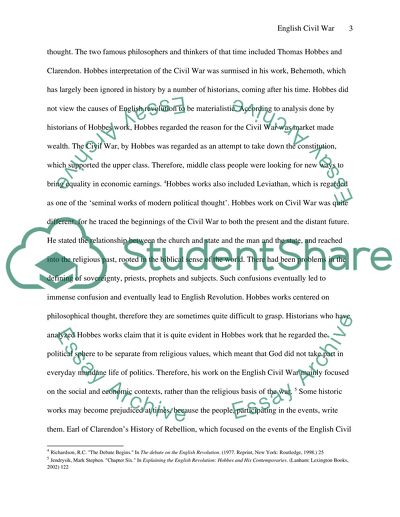Cite this document
(“Debates regarding English Civil War Essay Example | Topics and Well Written Essays - 1250 words”, n.d.)
Retrieved from https://studentshare.org/history/1430368-focusing-on-the-english-civil-war-assess-the-role
Retrieved from https://studentshare.org/history/1430368-focusing-on-the-english-civil-war-assess-the-role
(Debates Regarding English Civil War Essay Example | Topics and Well Written Essays - 1250 Words)
https://studentshare.org/history/1430368-focusing-on-the-english-civil-war-assess-the-role.
https://studentshare.org/history/1430368-focusing-on-the-english-civil-war-assess-the-role.
“Debates Regarding English Civil War Essay Example | Topics and Well Written Essays - 1250 Words”, n.d. https://studentshare.org/history/1430368-focusing-on-the-english-civil-war-assess-the-role.


